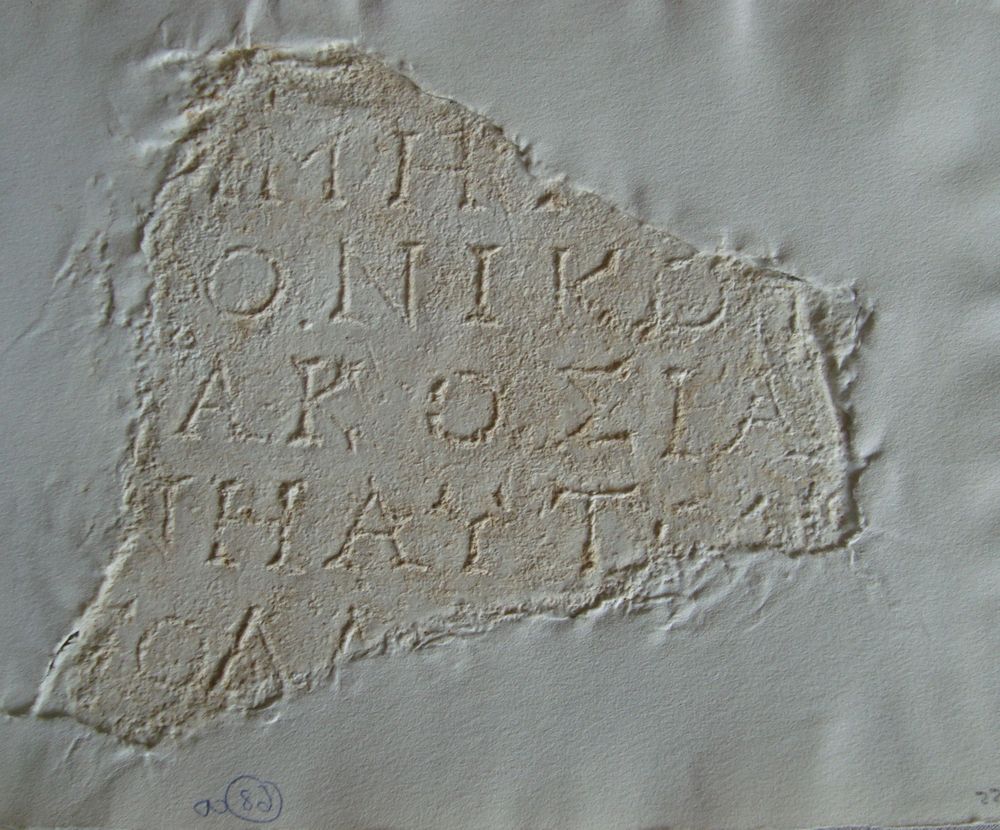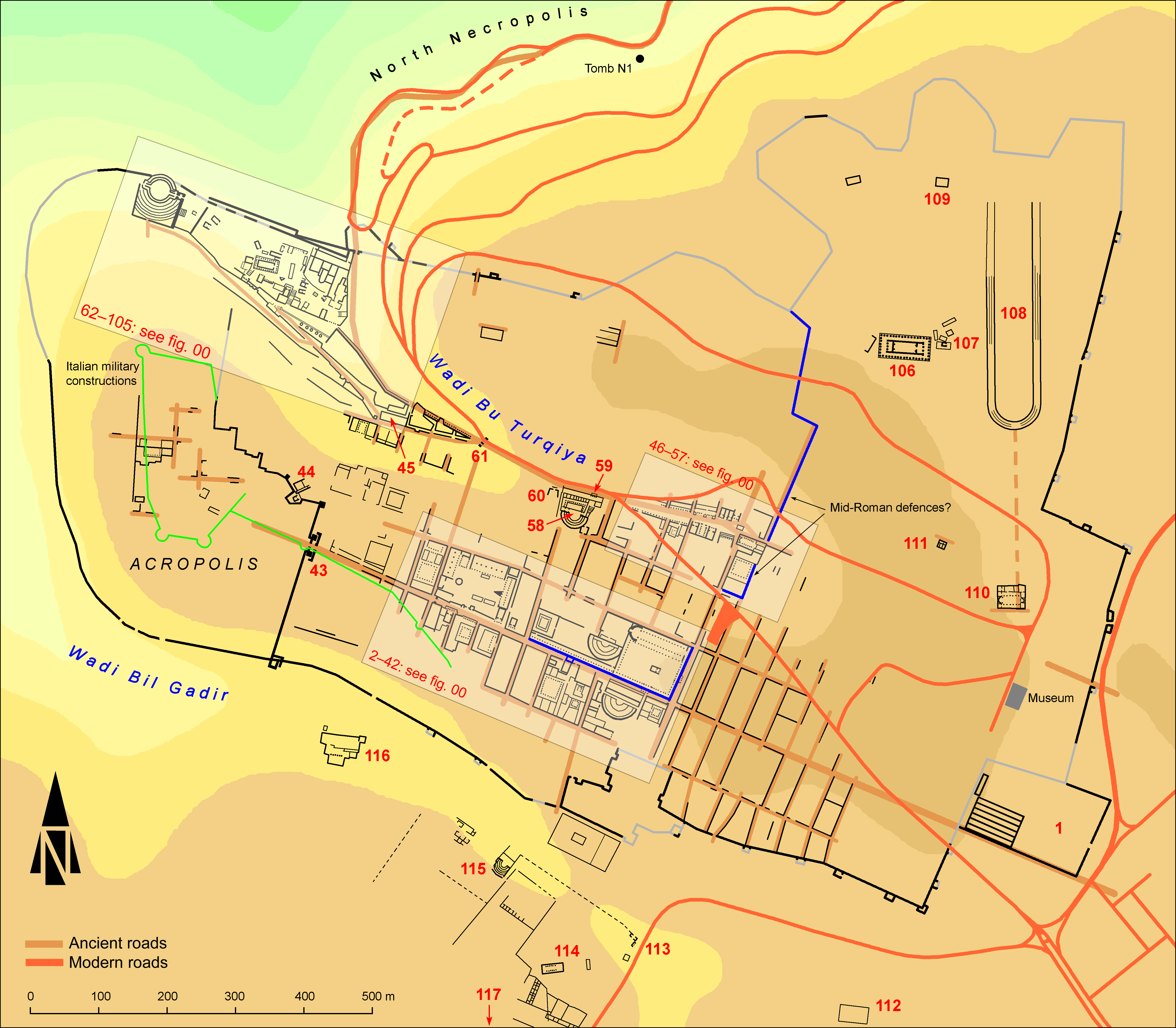EpiDoc XML:
IGCyr1288002
Trismegistos ID:
738835
Source description
Support: Fragment of a white marble block, broken off at left, above and below; on the right side, a dowel hole was intended for fixing the panel (w: 0.165 × h: 0.16 × d: 0.075).
Layout: Inscribed on the face, probably beginning with the present line 1 because of the larger space above it.
Letters: 0.015 well spaced, regularly cut letters with marked serifs; narrow alpha, non-slanting sigma.
Date: Probably second century BC (lettering).
Findspot: Found before 1977 at Cyrene ➚: exact findspot unrecorded.
Place of origin: Findspot.
Last recorded location: Cyrene Museum, 355. Seen by C. Dobias-Lalou in 1977 in Shahat: Cyrene Museum.
Text constituted from: Transcription from stone (CDL).
Bibliography
Not published before IGCyr 128800 ➚.
Text
Apparatus
1: Ι̣ΜΗτ̣; [Δ?]η̣μητ̣[ρίου?]
4: [---]ΝΗ: [συγγε?]νῆ
5: π̣ολλ̣: [Ἀ]π̣όλλ̣[ωνι?]; [Ἀ]π̣ολλ̣[ωνίου?] or
French translation
Intraduisible (voir commentaire).
English translation
Not usefully translatable (see commentary).
Italian translation
Intraducibile (vedi commento).
Arabic translation
غير قابل للترجمة بشكل جيد
Commentary
Another fragment in the Cyrene Museum also bears inventory number 355: IGCyr0621002. They obviously do not belong together.
This fragment, cut with a nice monumental lettering, should belong to a monument of some prestige. Its koine features shows that it is in some way related to the Ptolemaic power. But many points are ambiguous. The most obvious word, at line 3, is a number of hundreds, but it may be restored from 200 to 900. It should apply to a neutral plural at the accusative, which would be missing before it. A faint parallel might be offered by the dedication of 80 strigils (IGCyr1007002).
At line 2 we probably have one of the many personal names in -νικος; however it would be a tantalizing guess to read ὀλυμπιόνικος or another such adjective. If the latter, it whould be necessary to have a personal name at line 5, being the subject of the implicit verb 'dedicated', while the honoured person would have its name and father's name at line 1. If the former, the mention of Apollo at line 5 would become plausible.
At line 4 the restoration of the word συγγενής, an aulic epithet at the Lagid court, is also a tantalizing guess which cannot be pushed ahead.
CC BY-NC-SA 4.0 Deed Attribution-NonCommercial-ShareAlike 4.0 International License.
All citation, reuse or distribution of this work must contain a link back to DOI: https://doi.org/10.60760/unibo/igcyrgvcyr2 and the filename (IGCyr000000 or GVCyr000), as well as the year of consultation.

